One fall afternoon, Hallie Gauch, a seventh-grader at The Rashi School, met a woman for lunch named Qwin (pronounced Queen), an immigrant from Uganda. The circumstances that brought them together were unexpected: a Torah portion, a rabbi, and the ADL.
An Unlikely Connection
When Hallie was preparing to become a Bat Mitzvah, she made an astute observation. Her Torah portion was about Abraham welcoming three strangers into his home. In stark contrast, recent immigration events had shown children separated from their parents at the US-Mexico border, isolated for months in detention centers.
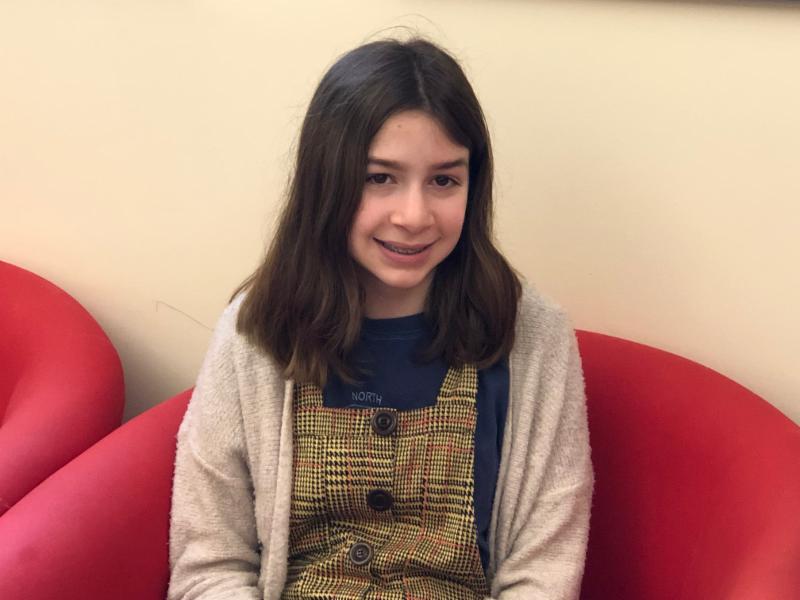
“I thought the two were connected,” said Hallie. “The idea of how we are very fortunate to be living in this country, but we’re not letting other people experience what we have.”
Around the same time, Hallie had just completed a three-day workshop with the ADL. Hallie, along with her peers at Rashi, learned different ways to deal with racism, homophobia, sexism, and antisemitism.
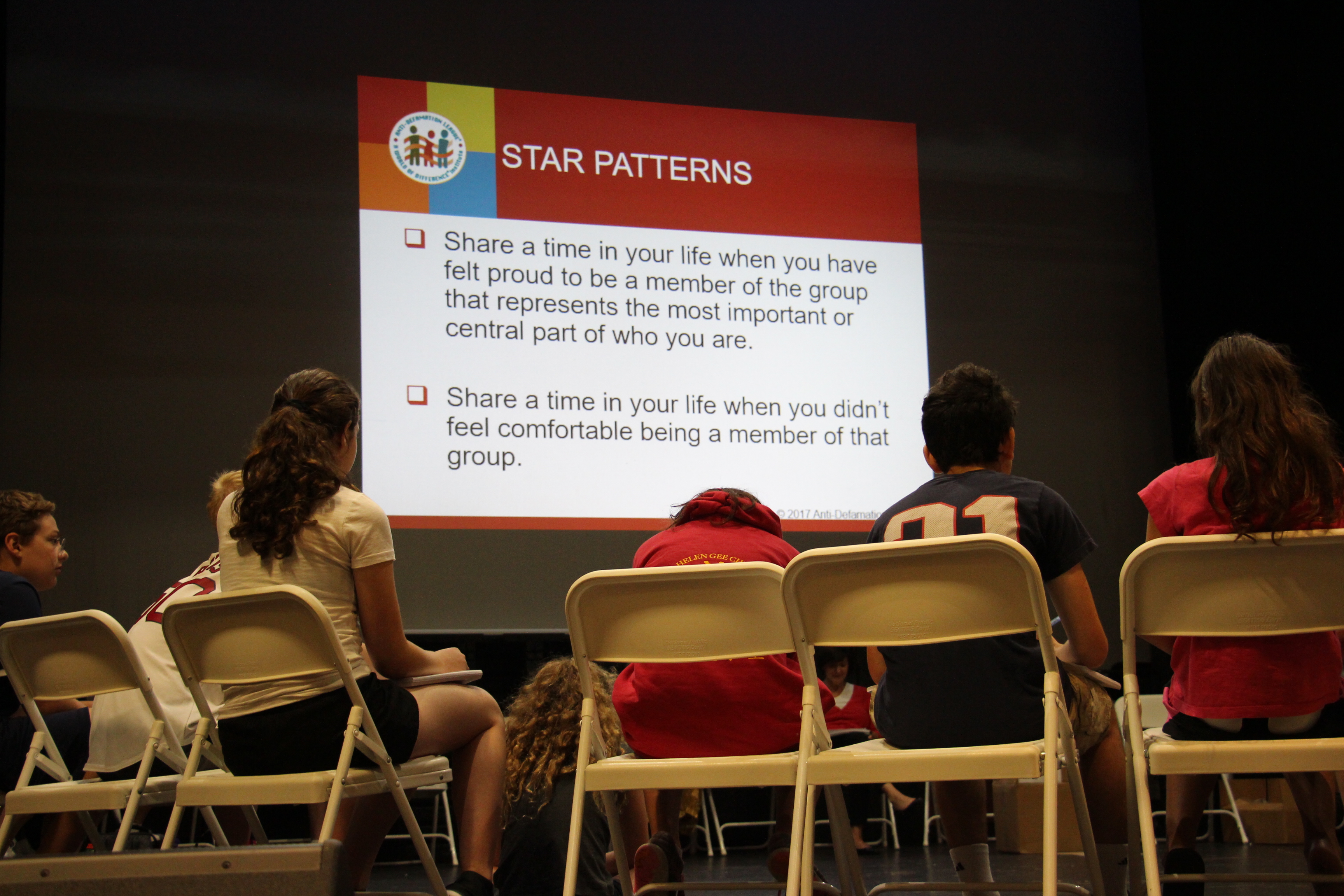
As her thoughts came into alignment, Hallie was eager to learn more about immigration issues. She spoke with her rabbi educator, Rav Hazzan Berger, at Temple Emanuel in Newton, who suggested that Hallie speak with Qwin who had previously worked at the temple.
Qwin’s Story
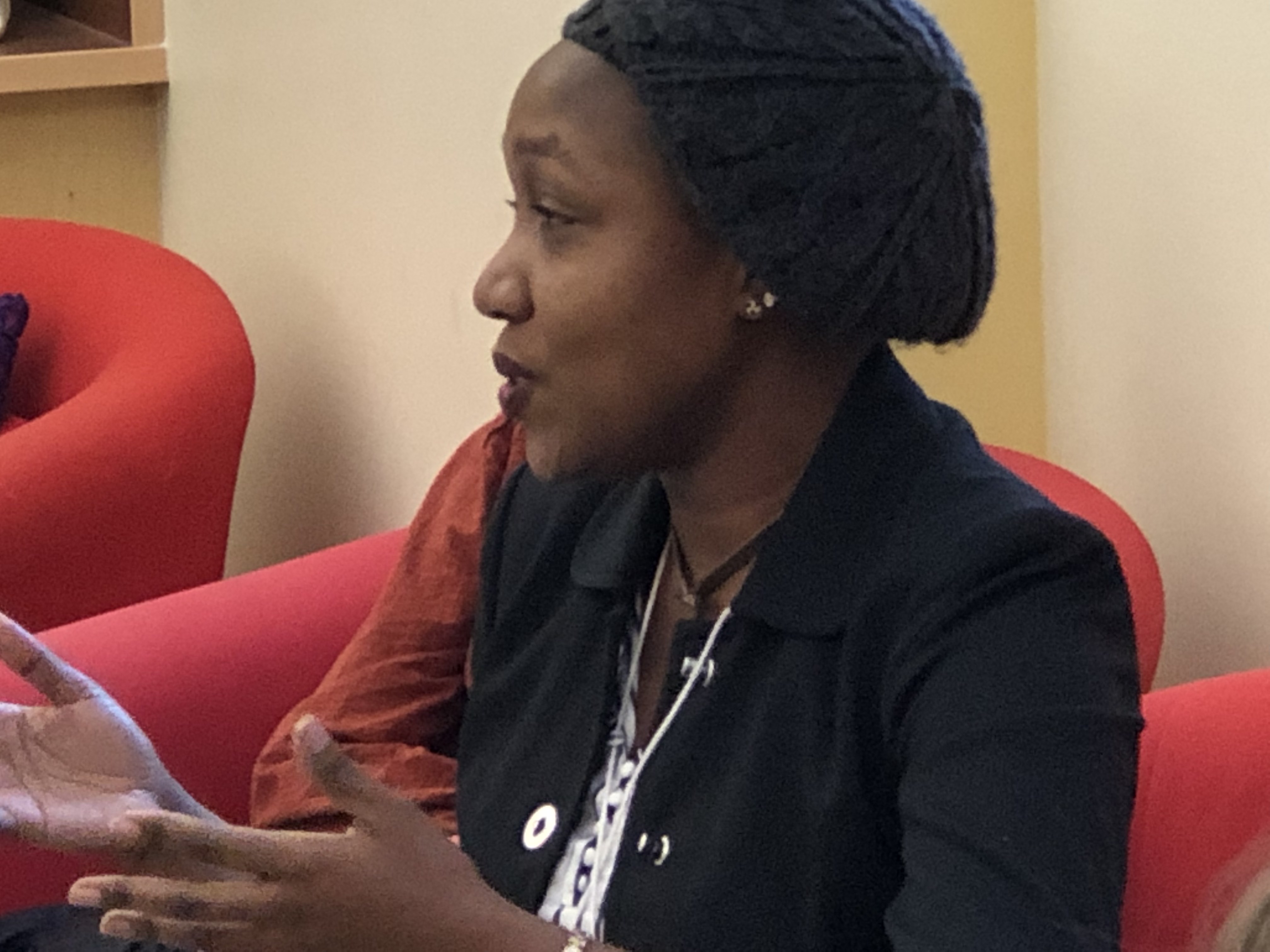
In Uganda, Qwin dealt with much violence because she was deemed a criminal. Her crime? She identified as a lesbian woman. At the time, Uganda’s Anti-Homosexuality Act carried a punishment of life imprisonment; however, it was also common for gay people to be beaten, raped, and even murdered while the government looked the other way.
Fearing for her daughter’s life, Qwin’s mother bought her a one-way ticket to Boston. This meant that Qwin would need to leave her wife in Uganda – a steep price to pay for safety.
A few days later, Qwin arrived in Boston on a red-eye flight and for a brief moment, she was free – free from fear and free from oppression. But without proper immigration paperwork, Qwin was handcuffed and unwittingly sent to a Boston prison that was also being used as an immigration detention center. While Qwin awaited asylum for six months, local rabbis visited her regularly – giving her hope and connecting her with the PAIR Project and Mintz Levin for legal counsel.
Eventually, Qwin gained asylum in the USA.
Welcoming the Stranger
“After I heard Qwin’s shocking story, I knew that I wanted to have her be a guest speaker at Rashi,” said Hallie. “I thought that more people should know about what she went through. Most kids aren’t aware of what goes on outside our bubble.”
While Qwin’s story was horrific, Hallie knew her peers could handle it. “At some point or another, you’re going to learn about this stuff. If it’s going to be covered up or softened, then you can’t evolve and learn.”
Qwin agreed to share her story and a few months after Hallie’s Bat Mitzvah, Qwin visited Rashi’s Middle School Student Government.
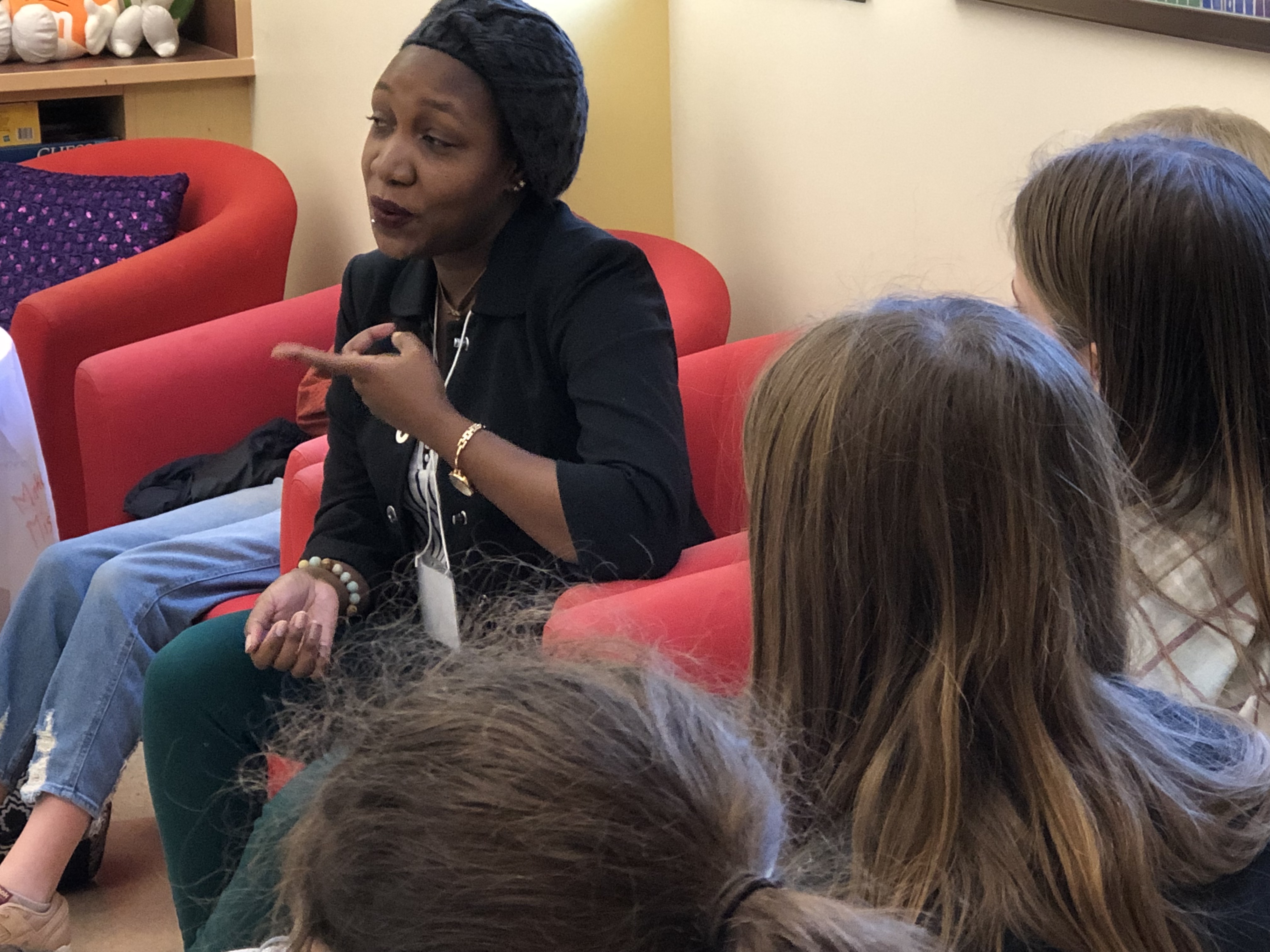
“I think it was empowering to hear Qwin’s story in a safe setting so kids could ask questions,” said Joni Fishman, Dean of Middle School Students. “We’re used to hearing horror stories that happen in other countries, but the real shock here was learning how Qwin was treated like a criminal when she got off the plane in Boston!”
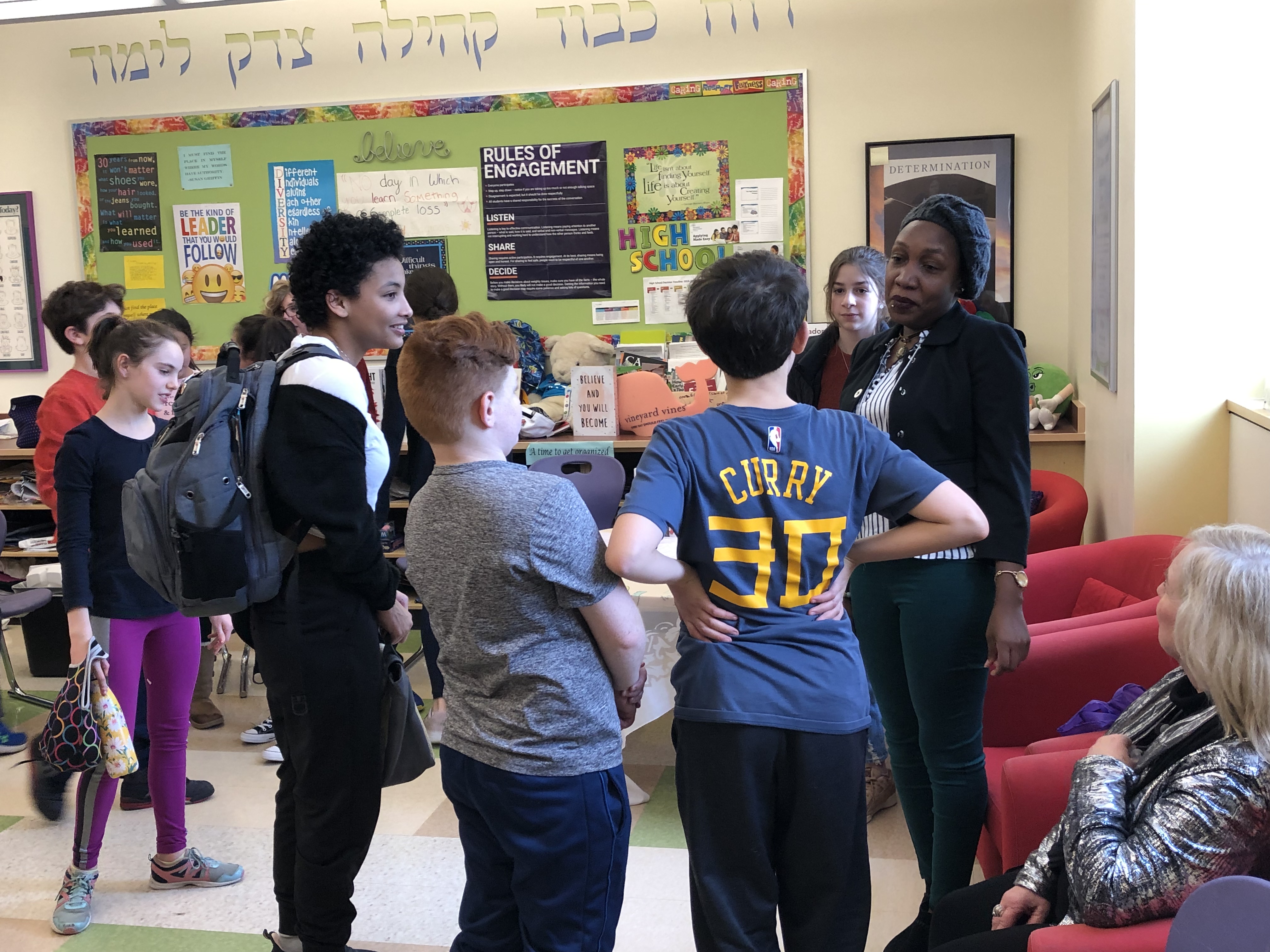
Hallie thinks the Jewish community was so accepting of Qwin because Jewish people are all too familiar with persecution. “I think as Jews, we know about being oppressed throughout history and we have pride in our religion. We have an acceptance of others because we don’t want them to feel what our people had to go through. We can’t be so complacent to think that everyone feels accepted.”
Maintaining a Supportive Community
Each week, Rashi’s Middle School Government participates in a Lunch and Learn discussion, just like the one where they met Qwin. This informal, yet focused forum gives students the opportunity to develop critical awareness in a safe space about issues inside and outside of school.
Rashi’s next big push is to create an LGBTQ+ Alliance/advocacy group so all kids feel respected and supported at Rashi. “It’s important for a school to be inclusive and allow everyone to be who they are,” said Joni. LGBTQ+ Alliances are becoming common in middle schools across the country. While Rashi students seem to have a strong voice of self-advocacy, Joni reflects on Hallie’s thoughts about complacency, and she agrees — we can’t assume that everyone is comfortable or feels accepted. Some students may find it difficult to identify or talk about their differences.
Additionally, Rashi has officially partnered with Keshet, a national organization that promotes LGBTQ+ equality and inclusion in the Jewish community. Several Rashi staff and educators will soon attend a leadership institute through Keshet to ensure our community becomes more equitable and respectful across differences.

